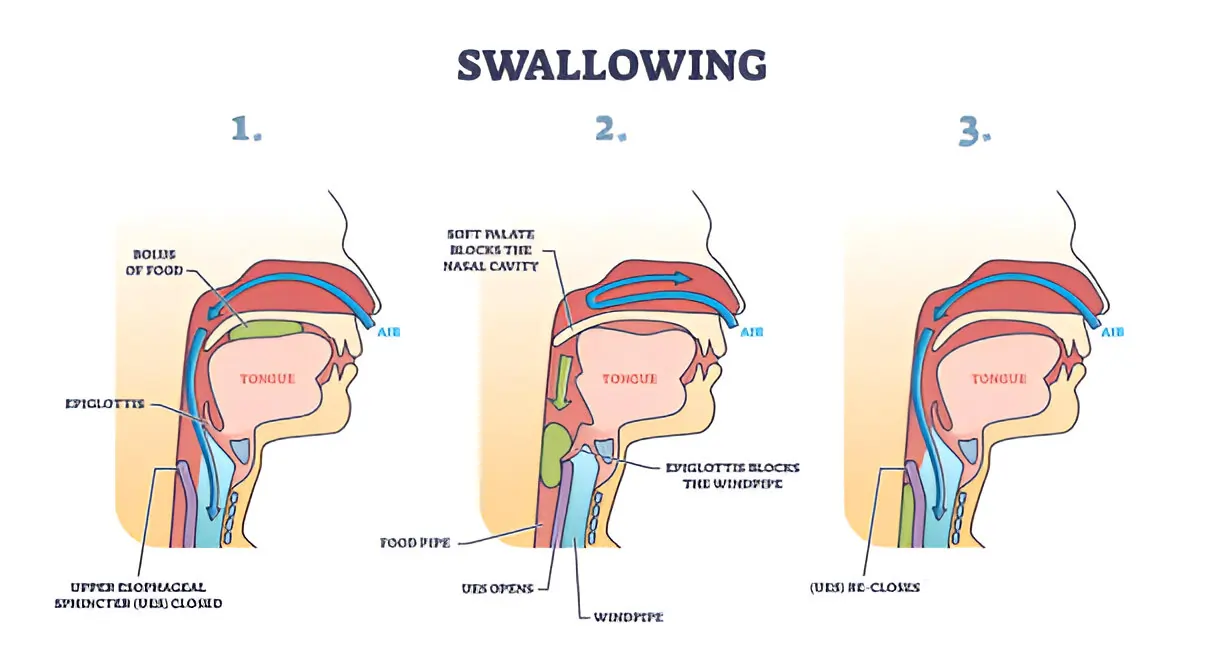Most of us don’t give much thought to swallowing. We do it countless times throughout the day; it’s second nature and even involuntary in some cases. When something disrupts that natural process, though, it brings it to the forefront of your mind, doesn’t it? What was once a routine activity becomes a stressful and even dangerous experience. What once took little thought or effort becomes something that requires real work and concentration.
If you or someone you love is living with a swallowing disorder, it can have a profound impact on many aspects of everyday life. It can seem overwhelming at first, and it requires making quite a few changes. Learning more about dysphagia and ways to manage it, such as proper food preparation techniques, swallowing exercises, thickening agents like Simply Thick, and other measures, can make dealing with this condition much easier and safer.
What Is a Swallowing Disorder?
As mentioned, a swallowing disorder is a condition that affects the normal swallowing process. It causes problems with the way foods and beverages move from the mouth to the stomach. This process involves several nerves and muscles, and if one of those components isn’t working the way it’s supposed to, swallowing can become difficult or painful. As a result, dysphagia can lead to choking, aspiration, lung infections, and many other problems.
Dysphagia can develop due to several causes. Those include stroke, brain injury, neurological conditions, head or neck cancer, and certain medical treatments or procedures. For some people, it’s caused by the natural weakening of muscles that comes with age.
Symptoms to Watch Out for
Dysphagia can cause a range of symptoms. As noted, it makes swallowing difficult. If a loved one is dealing with swallowing difficulties, though, they may not be obvious if you don’t know which warning signs to look for. Coughing or choking during or after eating is a common sign that someone may be living with dysphagia. They may also clear their throat often, or their voice may sound as though they need to.
People who suffer from dysphagia may take longer than usual to finish meals. They may drink less than they should as well. Many suffer from otherwise unexplained weight loss, malnutrition, and dehydration. They may also avoid eating or drinking around other people out of discomfort and embarrassment. If these symptoms arise, it’s important to speak with a doctor as soon as possible. The doctor may refer you or your loved one to a speech-language pathologist for further help.
Diagnosing Dysphagia
Swallowing disorders are typically diagnosed using diagnostic imaging or medical tests that are conducted by trained professionals. These measures help doctors and speech-language pathologists determine the reasons for a patient’s swallowing difficulties and which muscles or nerves are causing issues. That, in turn, allows them to properly treat the condition and provide additional support for managing it. Dieticians, occupational therapists, and other medical professionals may also be involved in providing care, support, and nutrition advice.
Living With Swallowing Difficulties
Swallowing difficult can bring about several changes to a person’s life. It can make getting the right nutrients and staying hydrated more difficult and prevent them from enjoying meals the way they once did. Dysphagia can affect your physical, mental, and emotional health. Fortunately, several resources are available to help minimize its impacts. They can empower dysphagia sufferers and their caregivers to overcome the condition and all the challenges that come along with it.
Read more: A Guide to Choosing the Right Replacement Spare Parts for Your Mercedes Benz
Top Rust Development Companies Driving High-Performance Applications
A Guide to Choosing the Right Replacement Spare Parts for Your Mercedes Benz










